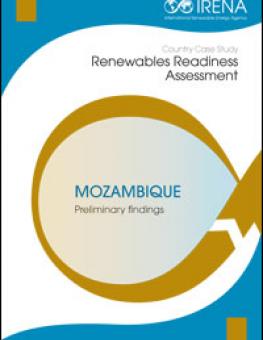
Renewables Readiness Assessment Country Case Study: Mozambique
Working with the International Renewable Agency (IRENA), IISD has developed a methodology to enable countries to assess their readiness for renewable energy deployment.
A Renewables Readiness Assessments (RRA) highlights the conditions for renewable energy deployment in a country and potential actions to improve these conditions. The assessments cover a range of needs (transport, heat, electricity and motive power), and a range of sources of renewable energy, as judged appropriate by the country itself.
The RRA methodology was tested in two pilot studies—one in Senegal and one in Mozambique—at the end of 2011. This case study is a preliminary report on the findings from Mozambique.
You might also be interested in
The Cost of Fossil Fuel Reliance
Government support for fossil fuels reached at least USD 1.5 trillion in 2023, new data shows.
Increased Support Needed to Achieve India's Clean Energy Goals
India is on track to achieve many of its 2030 clean energy goals but needs to step up government support measures to accelerate the deployment of offshore wind, electric vehicles, and green hydrogen, according to a new report.
Ending Export Credits for Oil and Gas: How OECD countries can end 2024 with a climate win
For a year now, Organisation of Petroleum Exporting Countries (OECD) governments have been negotiating an agreement that could put an end to oil and gas export finance. Following the acrimony in Baku, this would be a very real way for the OECD to show policy coherence, respond to calls from the poorest countries to stop subsidizing fossil fuels, and shift public finance to solutions.
Fossil Fuel Production, Renewable Energy, and Subsidy Reform in Nationally Determined Contributions 3.0
This policy brief provides an analysis of the critical benchmarks and recommendations necessary for aligning nationally determined contributions (NDCs) with the 1.5 °C target.